COOPERATION MODEL
ARTIFICIAL INTELLIGENCE
PRODUCT ENGINEERING
DevOps & Cloud
LOW-CODE/NO-CODE DEVELOPMENT
INDUSTRY
FRONTEND DEVELOPMENT
CLOUD DEVELOPMENT
MOBILE APP DEVELOPMENT
LOW CODE/ NO CODE DEVELOPMENT
EMERGING TECHNOLOGIES







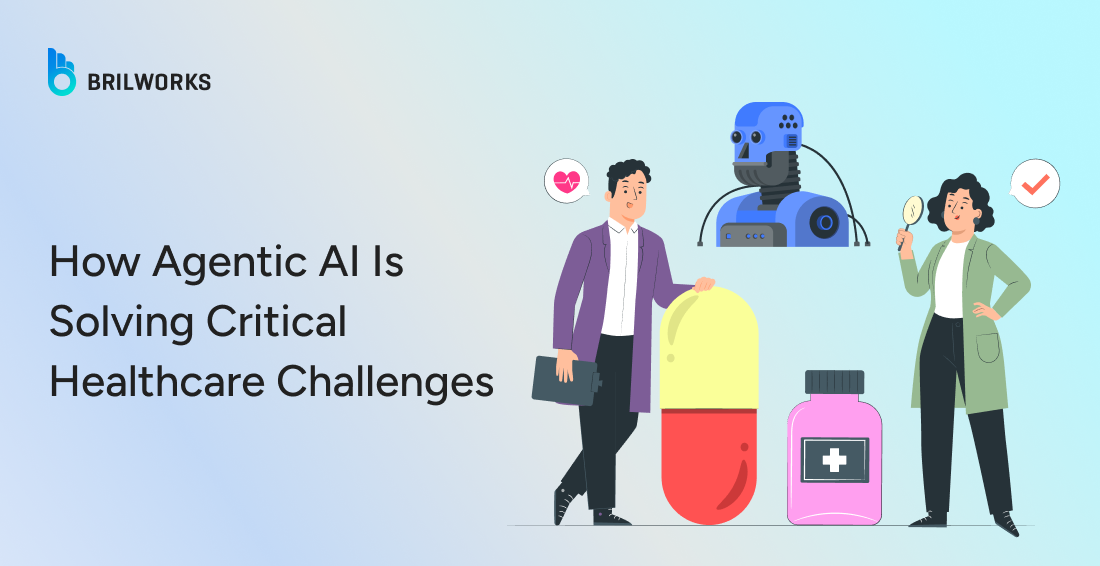
Agentic AI, you might have heard about it; now it is appearing everywhere. Hundreds and thousands of blogs, microblogs on social platforms are being written about it. It is a new big thing emerging in the AI field, influencing almost every industry, including the healthcare sector. And its adoption and interest are high. Gartner predicts usage will surge by 2028, it was just 1% in 2024, and the market will reach around $200 billion in 2034.
Agentic AI offers healthcare professionals and organizations the ability to automate complex workflows. Yet human oversight is crucial.
This blog explores how agentic AI is reshaping healthcare. We will also know how it solves several challenges and improves healthcare services.
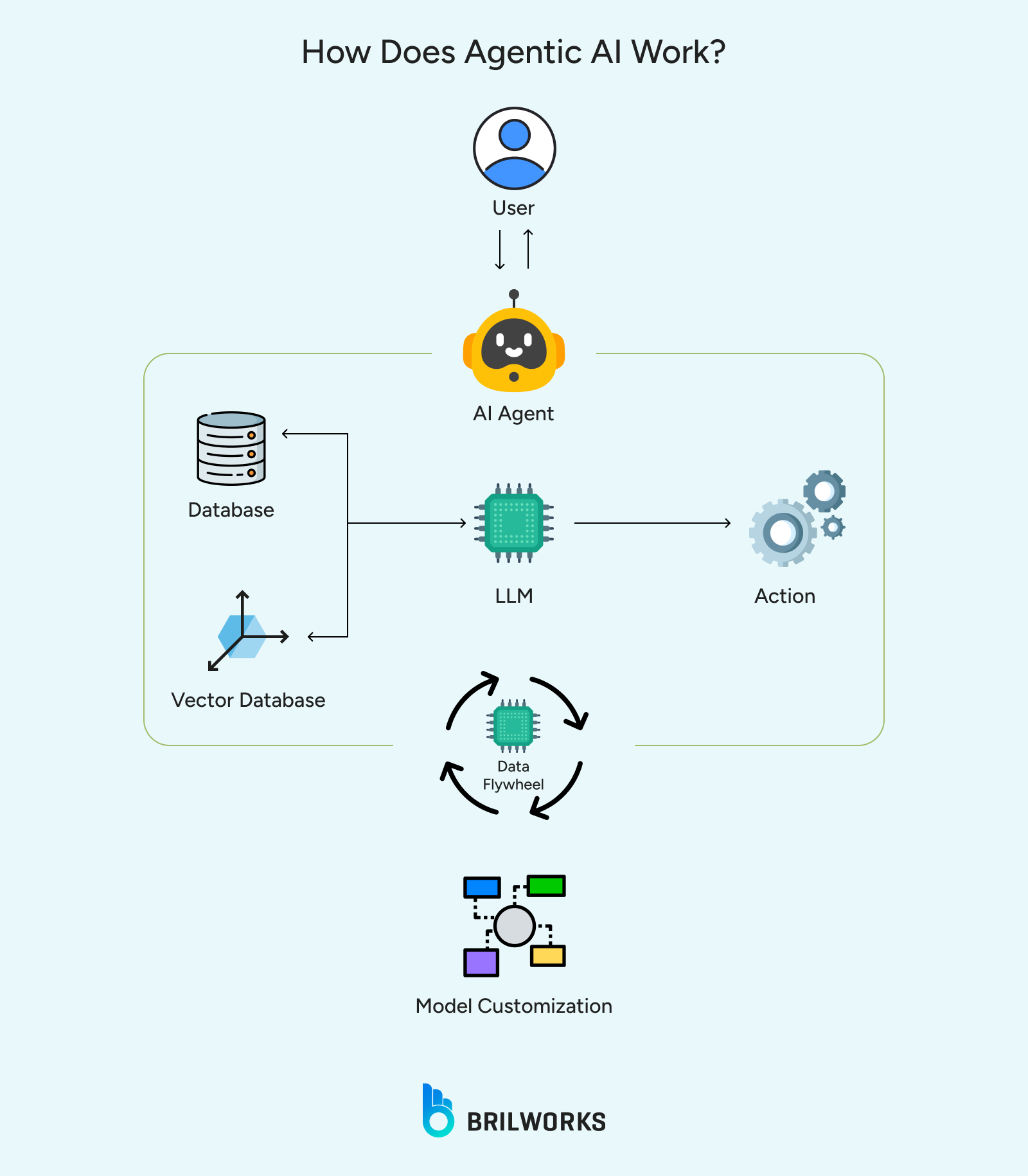
Agentic AI is an advanced artificial intelligence system that includes multi-step reasoning. Unlike traditional AI, it can make decisions with minimal human oversight. Agentic AI goes one step further and can make better and more accurate decisions.
How?
Generative AI uses data from LLMs to produce results and is also dependent on the prompts used by users. Agentic AI pulls information from various sources. It involves multi-layered reasoning to conclude tasks.
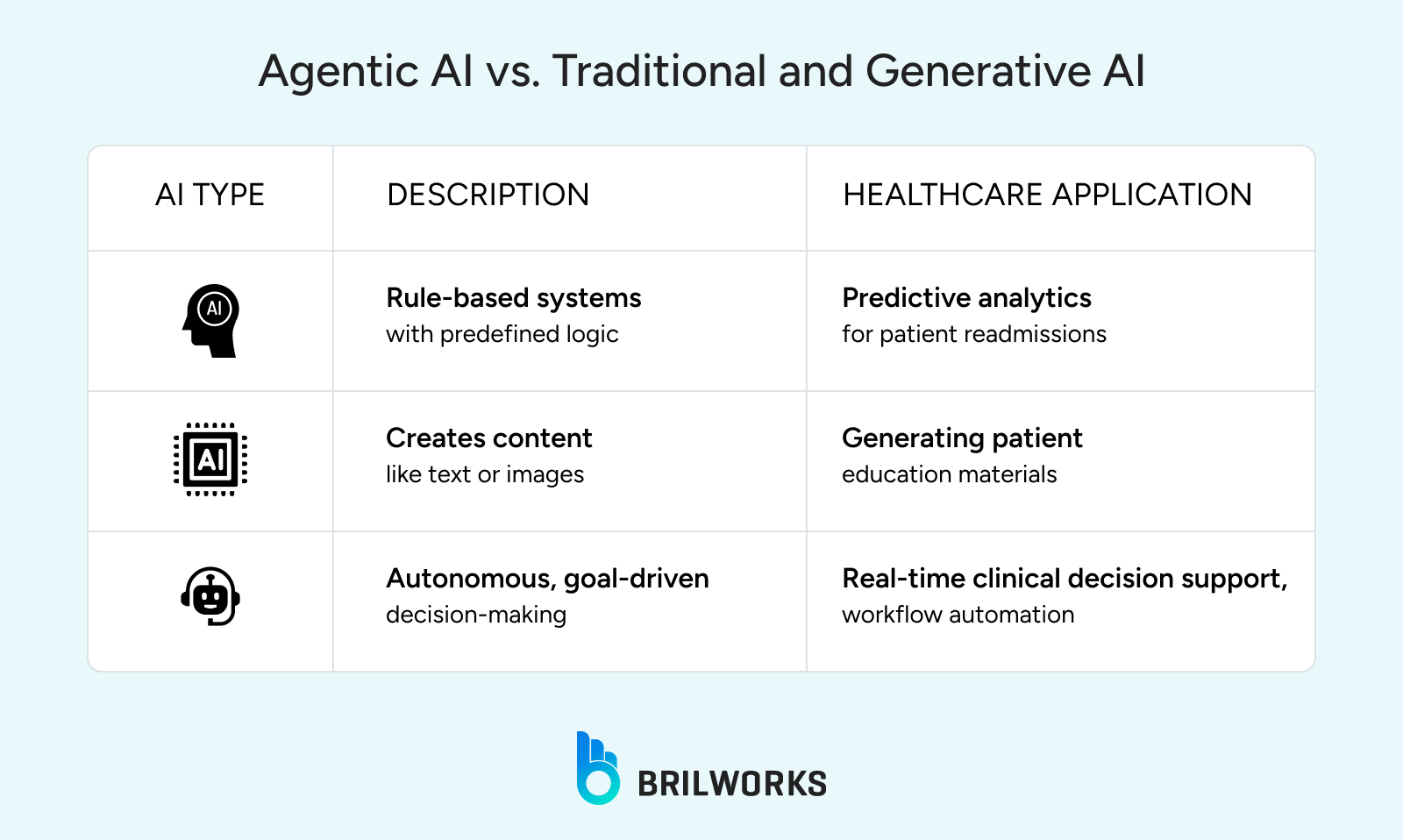
Let's say you run a clinic; here's how generative AI and agentic AI can work together. Generative AI tech can look for patient records and then write instructions accordingly.
Agentic AI can take this one step further. It can check if the patient has read the instructions. If they haven’t, it sends a friendly reminder, like, “Hey, check your care plan!”
Agentic AI is mainly used as an automation framework in business settings.
Healthcare professionals can easily find themselves submerged in data. They are overwhelmed, even when working as a team. Agentic AI can help make sense of whole datasets at once with speed, precision, and accuracy. Therefore allowing clinicians to focus on the important tasks.
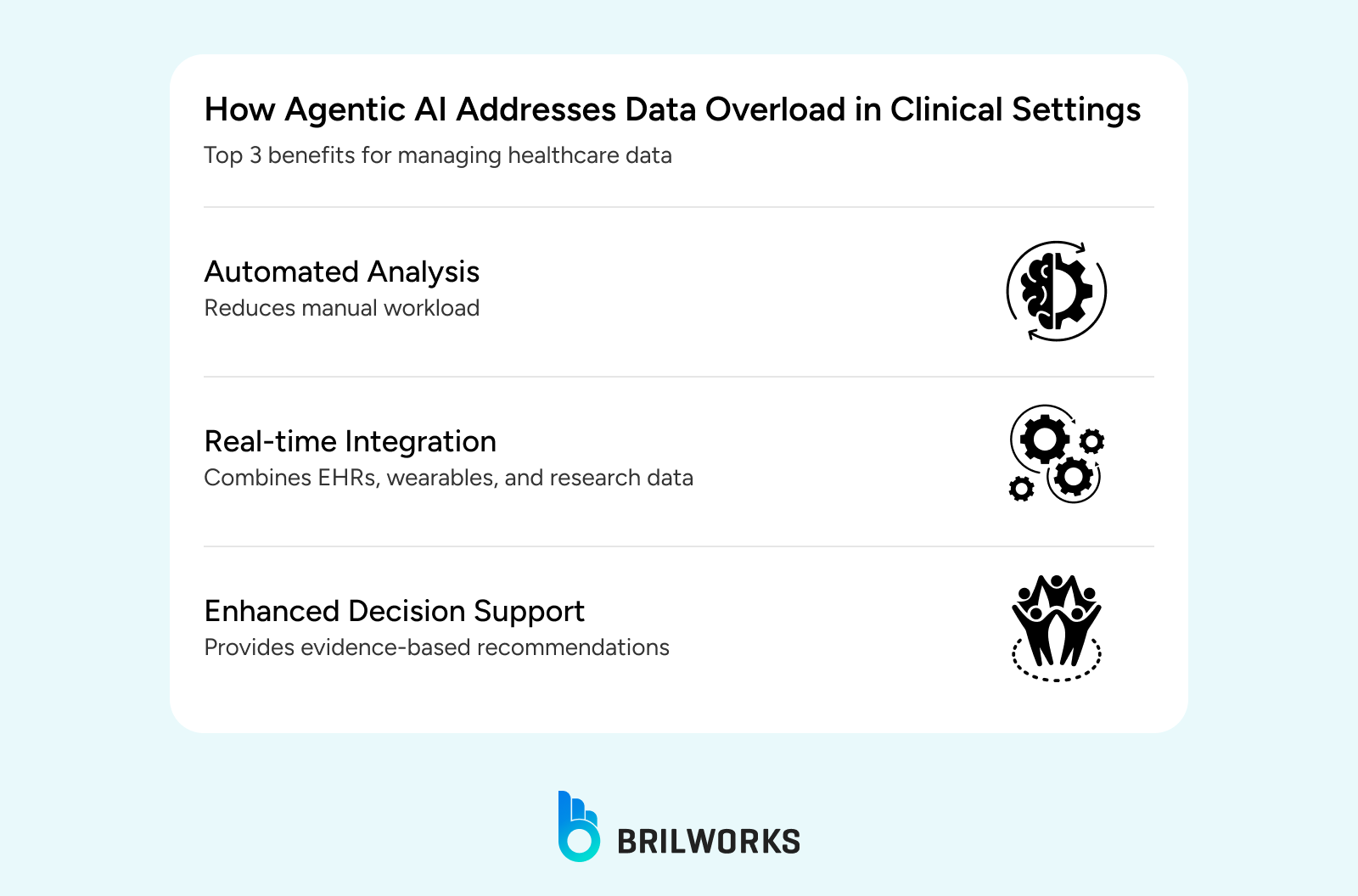
Agentic AI systems are capable of simultaneously searching patient records. For example, agentic AI can search through and process data related to patient conditions in just seconds. It can summarize relevant literature in a matter of hours.
Capabilities:
Agentic AI is well-suited for synthesizing electronic health records (EHRs), wearables, devices, and research databases. Multimodal AI also applies to combining text, images, and numerical data to provide more valuable insights than single-source systems. For instance, using wearable data alongside EHRs will provide a more nuanced sense of changes in vitals and provide clinicians with an added level of early intervention for scenarios like heart failure.
Examples of Insights:
Agentic AI is transforming healthcare through practical, high-impact applications. Here are the primary use cases driving change.
Agentic AI improves clinical decision support systems. It can evaluate symptoms, test results, and medical literature to provide evidence-based recommendations. For example, it can suggest differential diagnoses for uncommon diseases.
Diagnostic Applications:
Agentic AI powers remote monitoring through IoT devices and wearables. Thereby detecting subtle changes in patient health. For example, AI agents can alert clinicians to irregular heart rhythms.
Benefits:
Agentic AI can accelerate drug discovery by analyzing large datasets efficiently. It simulates drug interactions through specialized hardware and predicts potential side effects. Additionally, agentic AI can review existing content to identify previously overlooked research approaches and molecular collisions that may cause unexpected drug interactions.
Applications:
Agentic AI reduces administrative workload. This means less burnout for healthcare professionals. It can be used for automated scheduling, automated documentation, and streamlining the processing workflow.
Agentic AI can enable robot-assisted surgery, providing improved precision and safety. For example, systems like the da Vinci Surgical System improve the likelihood of fewer complications in procedures like prostatectomies and orthopedic surgeries with placement of implants and cardiac procedures with improved accuracy.
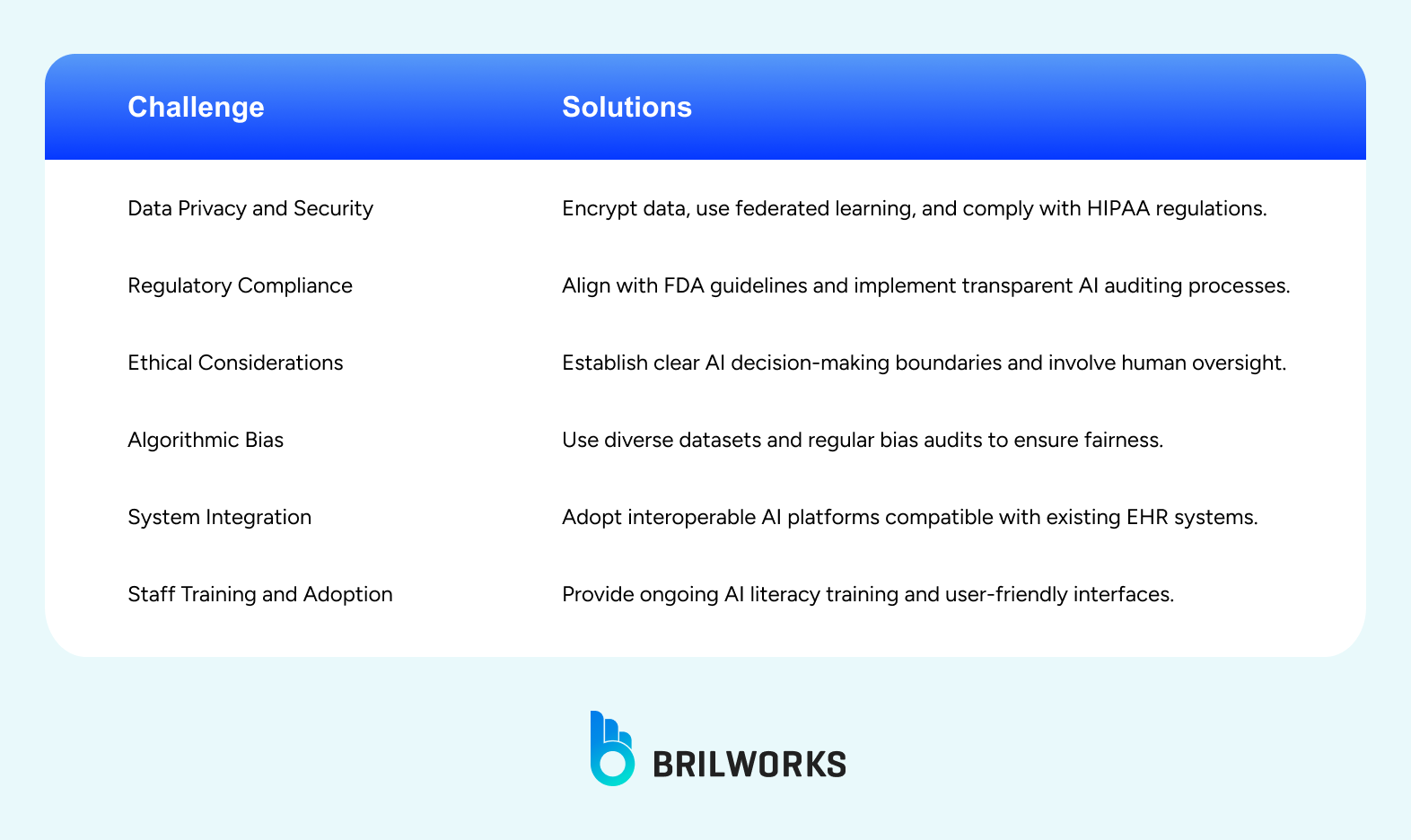
Healthcare organizations can adopt agentic AI by following a structured roadmap.
Assess current processes to identify the gaps that would benefit from agentic AI. Some guiding questions are: Which processes are the most time-consuming? Where in the process are errors most likely to happen? Be sure that the infrastructure supports real-time data processing and integration with EHRs.
Set measurable goals. You can set it like you can reduce diagnostic errors by 15% or reduce administrative hours by X%. Focus on high-impact use cases like clinical decision support or workflow automation aligned with your organization's priorities.
You will want to assemble a team of clinicians, data scientists, and administrators. Clinicians will be the ones able to ensure clinical relevance for the problems you are working to solve, while the technical experts will handle the integration of AI into your clinical system. Ensure to have regular cross-functional meetings to encourage collaboration.
A data governance framework is very crucial to ensure compliance with HIPAA and any other regulations. As part of the framework, anonymization and encryption of patient data are essential. At a high level, you will also need to make sure that the AI systems will be transparent and explainable.
Track key performance indicators like diagnostic accuracy, time savings, and patient satisfaction. You can gather feedback from users to identify pain points. This feedback can be used to improve these systems.
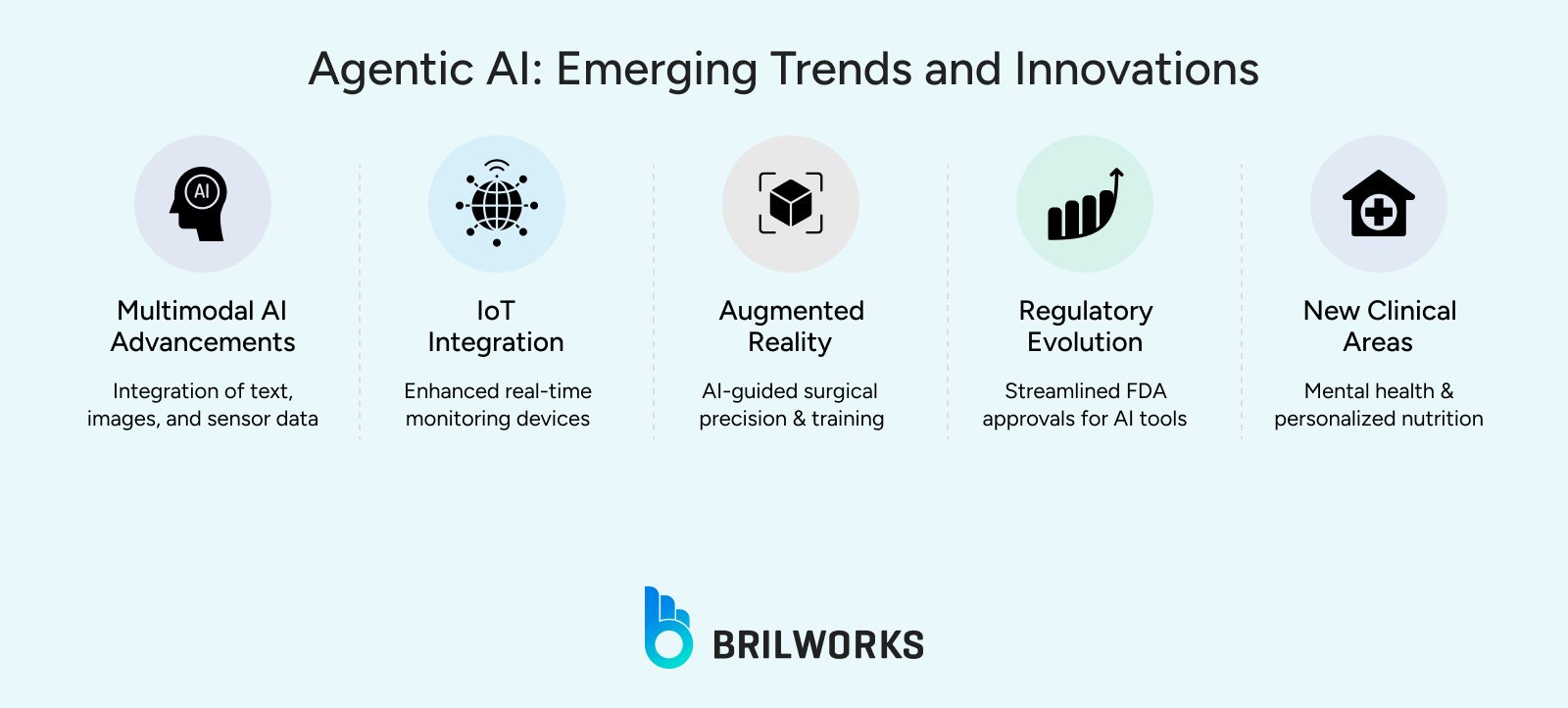
Agentic AI is poised to evolve rapidly, transforming healthcare delivery.
Key Trends:
Agentic AI is poised to change healthcare as it can automate complex workflows. It improves patient outcomes and enhances decision-making precision. It works as an assistant to healthcare professionals so they can focus on core activities.
As generative AI development develops, it will pair with agentic AI for combined new solutions. This technology is going to improve the efficiency and innovation of healthcare further.
The managed adoption of agentic AI will lead to further integration of AI into clinical practice, preparing the future state of healthcare to become more proactive, personalized, and accessible.
With the rapid emergence and integration of multimodal AI in conjunction with IoT sensor solutions, the next ten years will usher in remarkable advancements that will change healthcare for the better, support human connection, and make healthcare as smart as well as more human than it has ever been.
Smaller organizations can adopt cloud-based agentic AI solutions and focus on high-impact use cases like automated documentation to achieve cost-effective implementation with minimal infrastructure changes.
Professionals need basic AI literacy, training on system capabilities and limitations, and guidance on integrating AI into clinical workflows for seamless adoption.
Agentic AI uses encryption, anonymization, and HIPAA-compliant protocols to protect patient data while ensuring secure processing and storage.
Hospitals have reported up to 20% improvement in diagnostic accuracy, 30% reduction in administrative workload, shorter patient stays, and higher patient satisfaction scores.
Get In Touch
Contact us for your software development requirements
Get In Touch
Contact us for your software development requirements